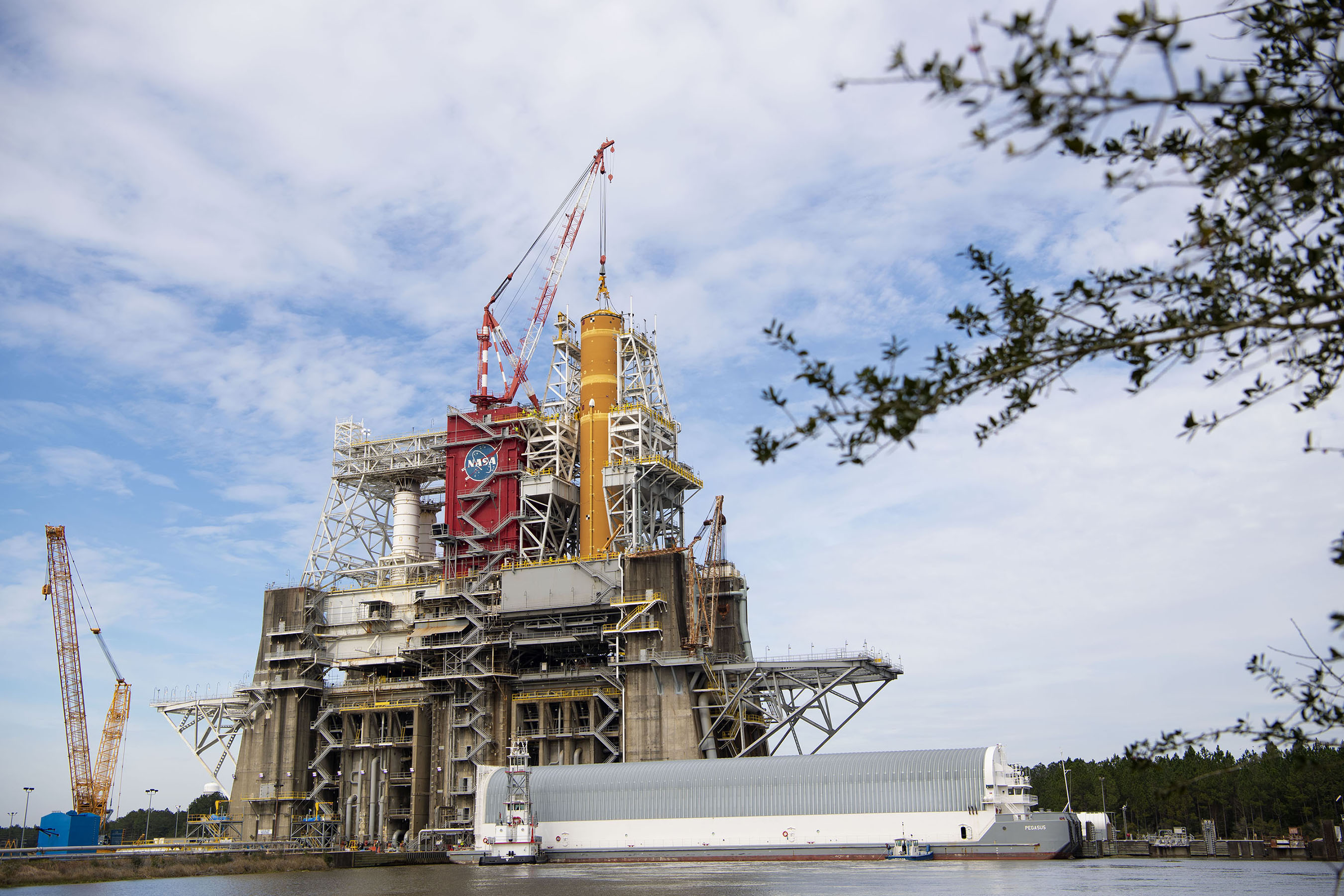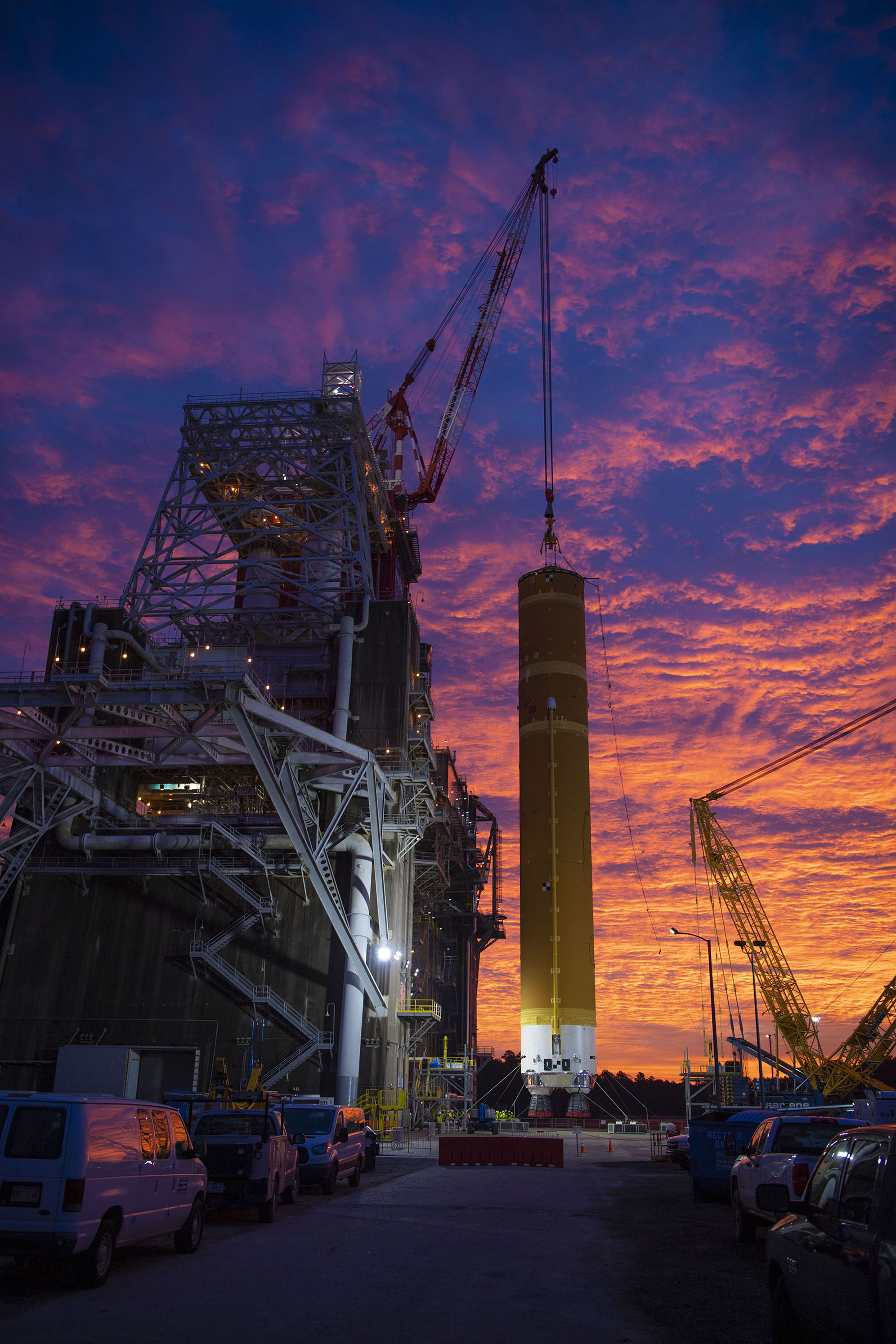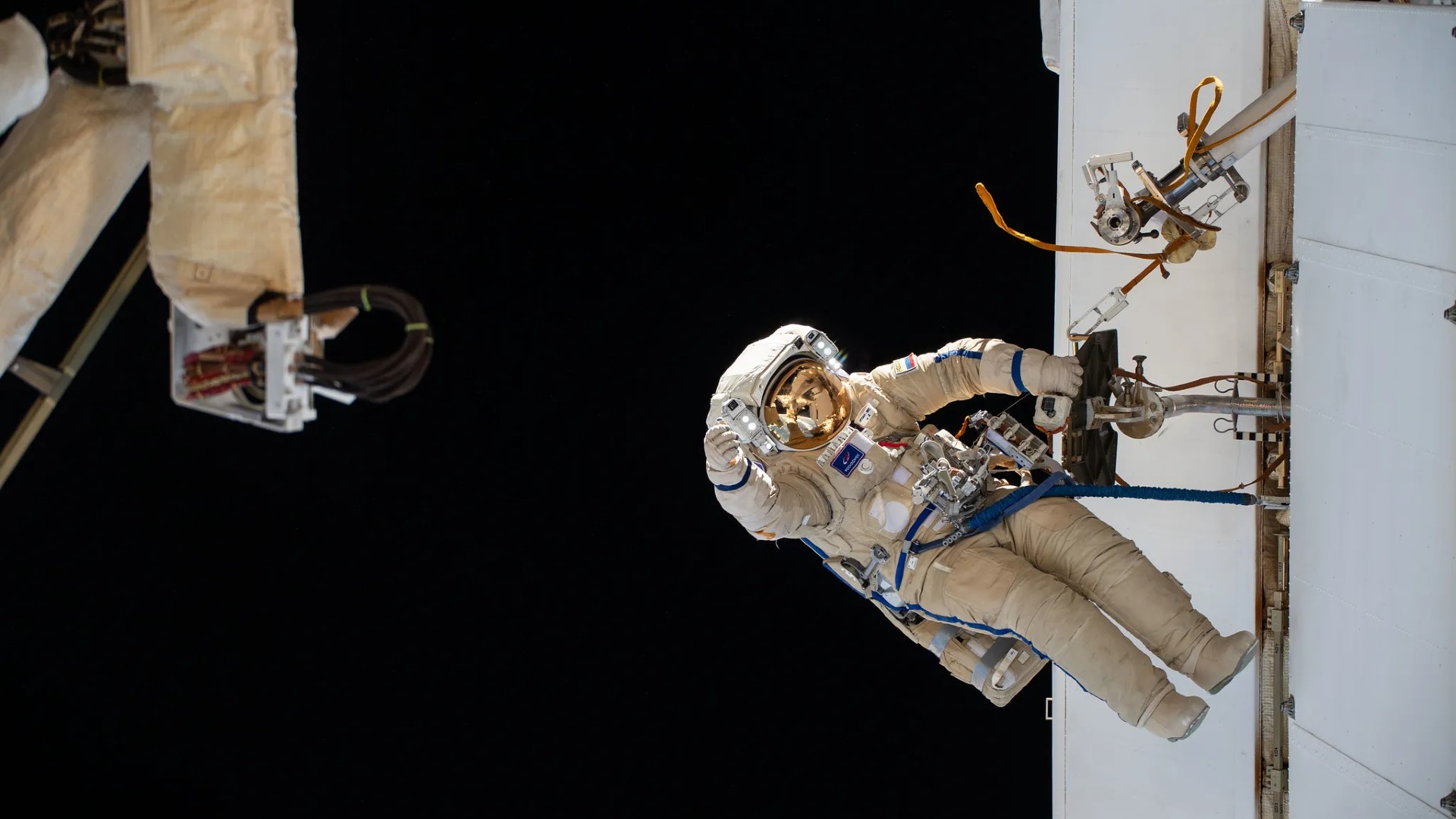Coronavirus pandemic delays key tests of NASA's new SLS megarocket
The first launch won't happen until late 2021 now.

Breaking space news, the latest updates on rocket launches, skywatching events and more!
You are now subscribed
Your newsletter sign-up was successful
Want to add more newsletters?

Delivered daily
Daily Newsletter
Breaking space news, the latest updates on rocket launches, skywatching events and more!

Once a month
Watch This Space
Sign up to our monthly entertainment newsletter to keep up with all our coverage of the latest sci-fi and space movies, tv shows, games and books.

Once a week
Night Sky This Week
Discover this week's must-see night sky events, moon phases, and stunning astrophotos. Sign up for our skywatching newsletter and explore the universe with us!

Twice a month
Strange New Words
Space.com's Sci-Fi Reader's Club. Read a sci-fi short story every month and join a virtual community of fellow science fiction fans!
A crucial NASA center is slowly reopening amid the lingering pandemic, but delays caused by coronavirus measures have ensured the first flight in NASA's Artemis program won't launch until late 2021.
NASA officials provided an update on the Artemis 1 mission, which will also be the first flight of the agency's massive Space Launch System (SLS) rocket, during a meeting this week of an agency advisory committee on human exploration and operations.
NASA had been targeting mid-to-late 2021 for Artemis 1, which will launch the agency's Orion capsule on an uncrewed journey around the moon. But the coronavirus pandemic has pretty much taken the earlier part of that window out of consideration, agency officials said.
For example, Stennis Space Center in Mississippi, the NASA center that must conduct vital tests on the SLS rocket, has been closed to nearly all onsite work since March 20 under measures designed to slow the spread of the COVID-19 respiratory disease.
"We're still fairly comfortable that we will be having the Artemis 1 mission toward the end of next year," Tom Whitmeyer, an assistant deputy associate administrator for NASA, told the NASA Advisory Council's Human Exploration and Operations Committee on May 14.
Related: NASA's 1st SLS megarocket core loaded on barge for key engine test
"We really need to get through what I'll call green-run tests," Whitmeyer said, referring to a series of trials with the giant SLS core stage implemented to ensure the rocket is ready for flight. And the Stennis team had been on track for the tests, he emphasized. "If you were to visit Stennis [in mid-March], what you would see is that the core stage is in the stand, we've got about 10 days to go to complete all the integration activities necessary."
Breaking space news, the latest updates on rocket launches, skywatching events and more!
Then COVID-19 protection measures came into play, and, based on case counts in the area, Stennis shut down to all but the most essential onsite work. For six or seven weeks, Whitmeyer said, the center saw only the most necessary maintenance tasks. And to ensure the safety of center workers, getting people back to work at the facility will be a slow, careful process, he emphasized.
The result is that the vital SLS tests will be delayed. The Artemis 1 SLS had arrived at Stennis in January. Before the pandemic, NASA had hoped to do a hot-fire test on the rocket in August in order to deliver it to Florida's Kennedy Space Center in October. During that test, the full core stage and engines will fire for eight minutes, as they will during a real launch.
Now, Whitmeyer estimates that timeline will be delayed by about three months, with the SLS arriving in Florida late this year or early next year. "I think we're looking at a hot-fire test that may take us up to Thanksgiving," he said. "I can't really predict this right now because we're really trying to look at the efficiency of operations in this new regime that we're all operating in."
In addition to coronavirus uncertainties, Whitmeyer emphasized that, unlike some testing facilities, the Stennis equipment needed for the green-run is open-air, and the facility is in a region known for hurricanes, which could cause further delays.
And, of course, the tests themselves may reveal issues that slow down the ultimate launch schedule. "The reason we're taking the time and effort to run this test is so we may actually learn something during the test," Whitmeyer said. "If we learn something during the test, we'll take more time to fix whatever we learn."
He emphasized the importance of a slow-and-steady mentality to reduce risk on the vital Artemis 1 flight.
"We need to take this methodically, not only with bringing people back on site but also taking a look at the data we get from the testing and make sure we incorporate that data back into the work that we're doing," Whitmeyer said of the green-run process. "We're going to really take it a step at a time and make sure we're ready to commit ourselves to a launch later next year."
- Could NASA build the famous Saturn V today? It's working on it, with a twist
- NASA's 1st SLS megarocket core stage for the moon has its engines (photos)
- Complete coverage of the coronavirus pandemic and spaceflight
Email Meghan Bartels at mbartels@space.com or follow her @meghanbartels. Follow us on Twitter @Spacedotcom and on Facebook.
OFFER: Save 45% on 'All About Space' 'How it Works' and 'All About History'!
For a limited time, you can take out a digital subscription to any of our best-selling science magazines for just $2.38 per month, or 45% off the standard price for the first three months.

Meghan is a senior writer at Space.com and has more than five years' experience as a science journalist based in New York City. She joined Space.com in July 2018, with previous writing published in outlets including Newsweek and Audubon. Meghan earned an MA in science journalism from New York University and a BA in classics from Georgetown University, and in her free time she enjoys reading and visiting museums. Follow her on Twitter at @meghanbartels.


